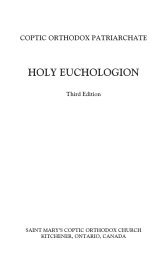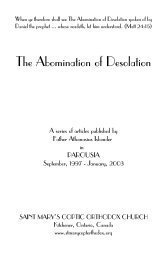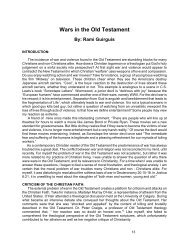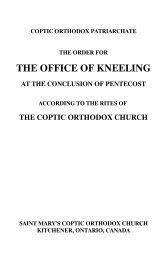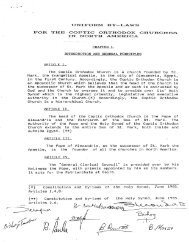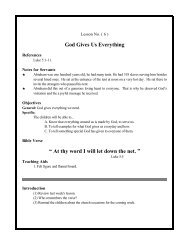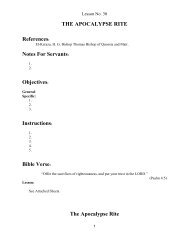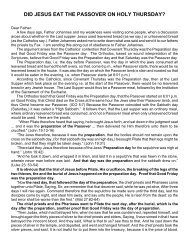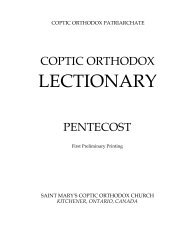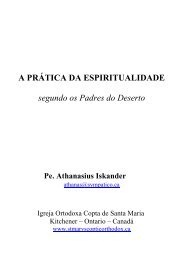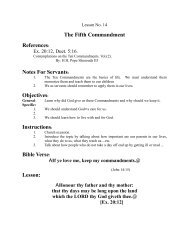Creation - St. Marys Coptic Orthodox Church
Creation - St. Marys Coptic Orthodox Church
Creation - St. Marys Coptic Orthodox Church
You also want an ePaper? Increase the reach of your titles
YUMPU automatically turns print PDFs into web optimized ePapers that Google loves.
Scientific Society of Brussels, under the title “A homogeneous Universe<br />
of constant mass and growing radius accounting for the radial velocity<br />
of extragalactic nebulae.”, he presented the new idea of an expanding<br />
Universe. He proposed what became known as the Big Bang theory of<br />
the origin of the Universe, although he called it his “Hypothesis of the<br />
primeval atom”. He basically proposed that the universe began with the<br />
explosion of a primeval atom. He based his theory, first published in the<br />
pages of Nature in 1931, on the laws of relativity set forth by Einstein,<br />
among others, although at the time Einstein believed in an eternal<br />
universe and had previously expressed his skepticism about Lemaitre’s<br />
original 1927 paper. 1<br />
1929: EDWIN HUBBLE:<br />
Hubble was a brilliant American Astrologer, who used a giant 100<br />
inch (2.5 metre) wide telescope to study the stars. He made a<br />
monumental discovery. He discovered that our galaxy which is called<br />
the milky way was not the only galaxy in the Universe but there were<br />
billions of other Galaxies. A new science was born called cosmology<br />
And Hubble became known as the Father of Cosmology.<br />
But he also made an even more monumental observation: “The<br />
distant galaxies are moving away from us and from each other with<br />
increasing speed.” This observation validated Lemaître’s earlier theory<br />
of an expanding universe (the Big Bang Theory).<br />
He consulted Einstein Who came to him and looked through the<br />
giant telescope and realized the mistake he made when he fudged his<br />
field equations. It became apparent that the motivation for introducing<br />
the cosmological constant seemed contrived. Einstein reasoned that “If<br />
the universe is rapidly expanding (like a balloon) then it must have had<br />
a definite beginning at some point in the distant past.” Admitting his<br />
blunder, Einstein retracted the “Fudge Factor” in 1932. 2<br />
Einstein ultimately gave grudging acceptance to what he called “the<br />
necessity for a beginning” and eventually to “the presence of a superior<br />
reasoning power.” But he never did accept the reality of a personal<br />
1 http://en.wikipedia.org/wiki/Georges_Lema%C3%AEtre<br />
2 http://www.astronomycafe.net/anthol/fudge.html<br />
7



